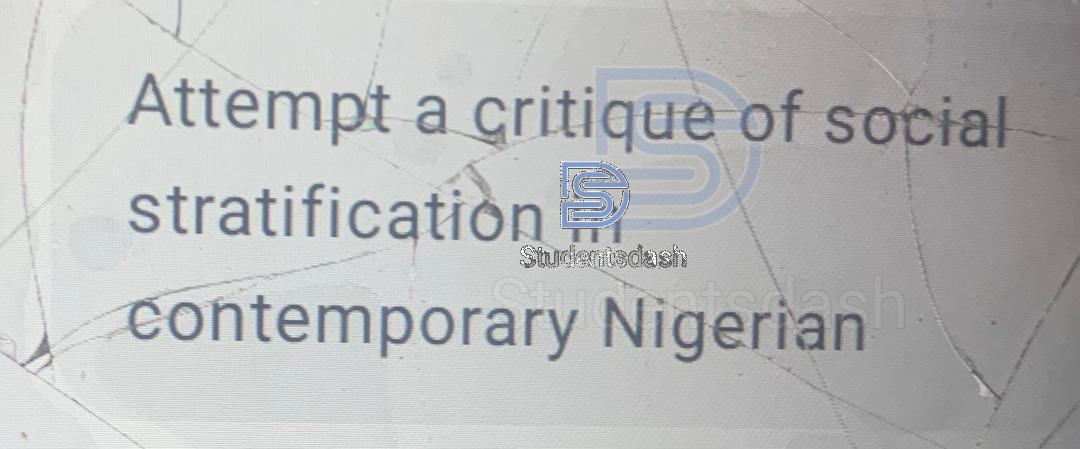Phil 105 Assignment Question and Answers
Solved by Studentsdash
- Write in a term paper on a global inequality and cosmopolitanism
A TERM PAPER ON GLOBAL INEQUALITY AND COSMOPOLITANISM
INTRODUCTION
Global inequality refers to the uneven distribution of wealth, opportunities, and resources across different countries and populations. Some nations enjoy economic prosperity, advanced technology, and high living standards, while others struggle with poverty, poor healthcare, and limited access to education. This inequality creates a gap between the rich and the poor on an international scale.
On the other hand, cosmopolitanism is a concept that promotes global citizenship, emphasizing unity, cooperation, and shared human experiences beyond national borders. It encourages individuals to see themselves as part of a global community rather than being restricted by nationality, ethnicity, or culture.
This paper explores the causes of global inequality, its effects, and how cosmopolitanism can serve as a solution to bridge the gap.
CAUSES OF GLOBAL INEQUALITY
1. Economic Disparities – Wealth is concentrated in developed countries, while many developing nations struggle with poverty due to lack of industrialization and weak economies.
2. Education Gap – Access to quality education differs across regions, making it harder for people in poorer countries to compete in the global job market.
3. Technological Advancement – Some countries have advanced technology that boosts their economies, while others lack access to modern innovations.
4. Political Instability – Wars, corruption, and bad governance prevent economic growth in some regions, worsening inequality.
5. Historical Factors – Colonialism and exploitation of resources in developing countries have left long-lasting economic and social inequalities.
6. Healthcare Disparities – Some countries have better healthcare systems, leading to higher life expectancy, while others struggle with diseases and lack of medical facilities.
EFFECTS OF GLOBAL INEQUALITY
• Poverty and Hunger – People in poorer nations face food shortages and malnutrition.
• Limited Opportunities – Many individuals cannot access good jobs or education, keeping them in a cycle of poverty.
• Social Unrest and Migration – Economic hardship pushes people to migrate to richer countries, leading to immigration crises.
• Global Conflicts – Inequality can cause tensions between nations, leading to instability and conflict.
COSMOPOLITANISM AS A SOLUTION
Cosmopolitanism promotes equality by encouraging global cooperation and shared responsibility. It emphasizes:
1. Global Education Initiatives – Encouraging access to education for all, regardless of nationality or background.
2. Economic Partnerships – Richer nations investing in developing countries to create job opportunities.
3. Technological Sharing – Making technology accessible to underdeveloped regions to bridge the digital divide.
4. Human Rights Advocacy – Promoting equality, justice, and fairness for all individuals globally.
5. Cultural Exchange and Tolerance – Encouraging understanding and respect among different cultures to build a united global society.
CONCLUSION
Global inequality remains a major challenge, creating divisions between nations and people. However, through cosmopolitanism, the world can work towards bridging the gap by promoting unity, equal opportunities, and shared progress. If individuals and nations embrace the idea of a global community, there will be a greater chance for fairness, justice, and equal access to resources for all.

